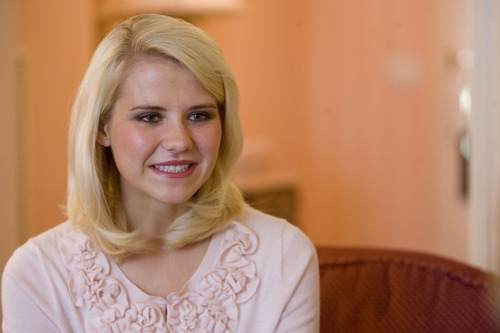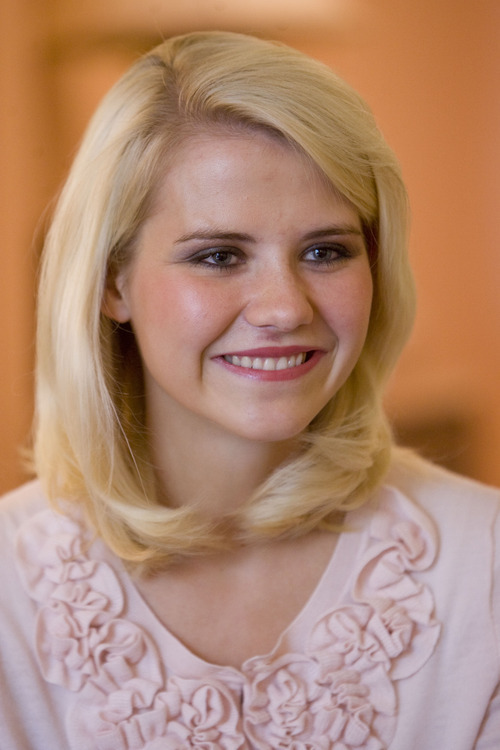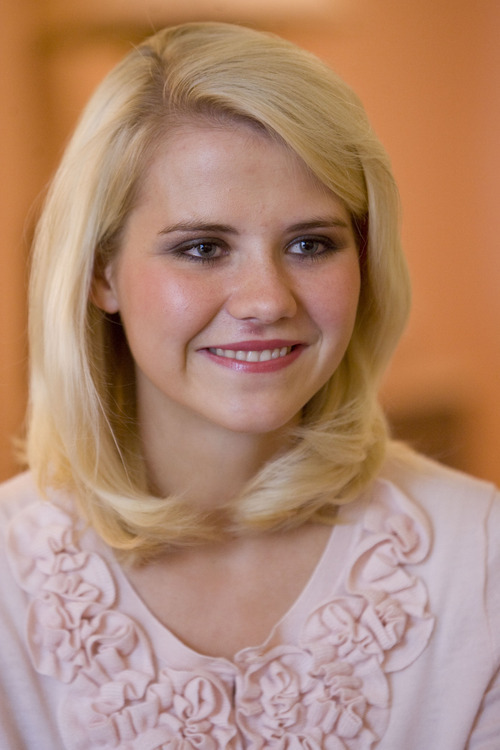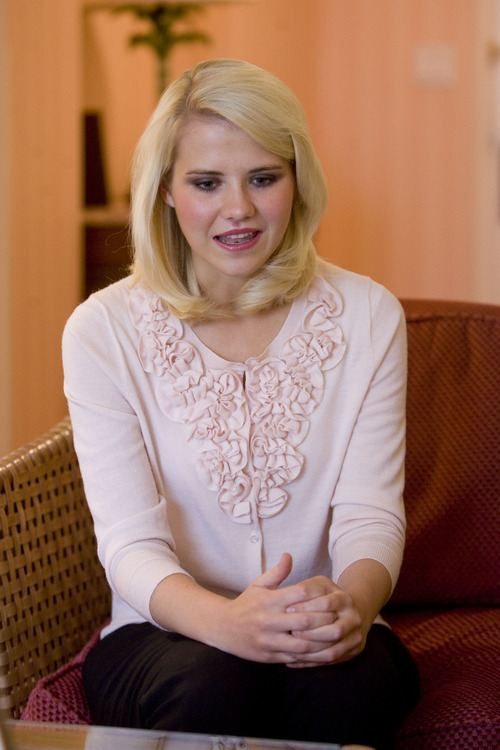This is an archived article that was published on sltrib.com in 2011, and information in the article may be outdated. It is provided only for personal research purposes and may not be reprinted.
Like other returned missionaries, Elizabeth Smart is busy reconnecting with family and friends and contemplating what's next for her life.
The 23-year-old is preparing for her final year at Brigham Young University, where she expects to graduate with a music degree in April. She's also considering law school and how she can best help other crime victims move on as she says she has done since her kidnapping at age 14.
"Right now, I'm just sort of staying open and not closing any doors yet," she told The Salt Lake Tribune on Wednesday as part of an unprecedented series of interviews with local media. "I want to go where I can do the most good and make the biggest difference. Time will tell."
But next week Smart will enter a federal courtroom one last time to face her captor, Brian David Mitchell, at his sentencing hearing. Mitchell, 57, faces up to life in prison for Smart's June 2002 kidnapping and the rapes that followed during her nine months in captivity.
It's a moment Smart is ready for, though it's doubtful she will receive any apology from Mitchell. He was ejected from the courtroom each day of his five-week trial for singing hymns, and defense attorneys claimed he kidnapped Smart to make her a plural wife because he is mentally ill.
"I think the most wonderful thing about it is that it will be over," Smart said of the May 25 sentencing. "The beauty of it is that we will be able to keep moving on."
At the top of her priorities for the future is working with her newly formed nonprofit, The Elizabeth Smart Foundation, which will focus on protecting children from abuse. The foundation will work on prevention, education and promoting radKIDS [Resisting Aggression Defensively]. The program teaches children about calling 911 and making defensive moves against attackers, Smart said.
"It teaches children that they have options," she said of the program. "It's more than just teaching, it's more than just doing. It's physical action. It makes you realize, if your hands are tied up, you have your legs. If your legs are tied up, you have the back of your head. … I would like to see it implemented in every elementary school in America, just like the D.A.R.E. program is in fifth grade."
The foundation will also seek to team up with the Internet Crimes Against Children Task Force, a multi-jurisdictional task force that investigates and prosecutes people who use the Internet to exploit children.
Smart received $50,000 to start the foundation after she was named a recipient of the DVF Award from The Diller-von Furstenberg Family Foundation, which recognizes and supports women who are using their resources, commitment and visibility to transform the lives of other women. She attended an awards ceremony in New York in March.
Meeting with reporters in 10-minute interview slots, the soft-spoken Smart was hesitant to offer many specifics on her future.
But she said law school has crossed her mind, particularly after the front row view of the legal system she has received over the past eight years as cases against Mitchell and his wife, Wanda Barzee, moved through both the state and federal courts.
"It was very, very interesting, the past few years," Smart said. "I have thought about [law school]. I'm still thinking about it. We'll see what the future holds."
Smart said she's still recognized in Utah by people who remember her from missing person signs and the intense media attention surrounding her case. She tries to see it as a blessing that people wish her well, instead of an intrusion on her privacy by a curious public.
"So many people did so much for me and for my family," Smart said. "I hope, that because there are such wonderful people in this world, I hope that people do wonderful things for other children out there who are missing."
Smart admits her time serving an 18-month mission for The Church of Jesus Christ of Latter-day Saints in France gave her a reprieve from the spotlight. Not many people in Europe knew the details of her story or approached her on the street, she said.
"My mission, how do you put it into words? It was an incredible experience, and I met so many wonderful people," Smart said. "One of the most amazing things about it was seeing how a person's life could be completely changed for the better. While I was there, that was my main focus and anything else that happened just was on the sidelines."
Mitchell's sentencing coincides with National Missing Children's Day, and both occasions will give Smart a chance to do what she said makes her happy: offering inspiration to other victims of crime and abuse.
The day, she said, will be a chance to give a voice to survivors.
"I'm hoping that I will somehow be able to reach out and help other victims, other children, other survivors [to] speak out about what has happened to them and give them new hope and new courage to take a stand," she said. "There have been so many people who have supported me and loved me and prayed for me. I could never say thank you enough."
mrogers@sltrib.com
Twitter: mrogers_trib































